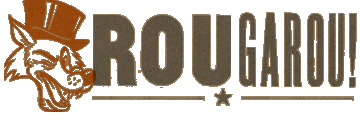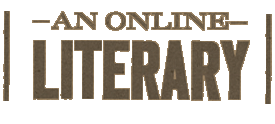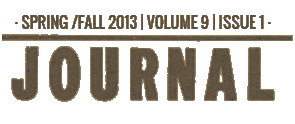· SPRING /FALL 2013 | VOLUME 9 | ISSUE 1 ·
Rougarou, an online literary journal.
Under the Sea
Authorfirst Wiley
When I was four years old, Nelson, my father’s brother, woke up at the usual time. After finishing a bowl of oatmeal and a cup of instant coffee, he sat for a moment on the creaking chair with yellow peeling paint on his porch and laced up his work boots, walked down the gentle slope of grass flanking his kitchen, and shot himself. Staring into a rambling meadow mired in morning brume and echoing with the cries of Hereford calves, he said goodbye to the world I was just coming to know. All I can remember of him are his sideburns, which clutched at the sides of his face like caterpillars, thick and long and dark. If I ever met his gaze, I cannot see his eyes anymore. In my mind, he sits always in profile, on a chair of synthetic green fibers, elbows resting on his knees and eyelashes set alert like antennae, exposed nerve endings.
At sixteen, armed and dangerous with an Indiana driver’s license, I began driving his pickup truck, American steel with a veneer of worn azure paint and a streak of vanilla running through the middle. One of the first times I drove it, down an empty country road with my father in the passenger seat, his window characteristically rolled down so there might have been no window at all. I suddenly began driving further and further to the right, more than hugging the shoulder, almost incapable of averting a phalanx of oncoming telephone poles, stiff as wooden soldiers. My father shouted, his voice high with fear, “Are you trying to kill us?” I didn’t know the answer. My heart was beating fast as a rabbit’s. I only knew that, for a few seconds, the truck’s momentum frightened me, and I ceded control to it. However open the road and despite the fact that my dad had just replaced the fan wheel, driving felt like something that was being done to me, not something I was doing myself. Against my wishes to go straight, Nelson’s truck simply wanted to go right. And more right, and end it all. It desperately wanted to bend its spinal column into the stingy embrace of telephone wire, and I nearly let it.
A few months later, I returned home from my lifeguard shift at the local pool with several buckets of paint scraping against the grooves of my truck bed. Sitting on my lifeguard chair, warding off litter as much as drowning with my whistle, I had determined to make this truck bed, this empty useless vessel, into an ocean, a seraglio of slow-motion underwater life. After painting the entire bed a solid coat of cyan that afternoon, I left it to dry overnight. The next morning I opened the can of yellow with the end of my dad’s screwdriver, now mottled in cyan, and began rendering sinuous shafts of light below the back window, as if the sun were shining just due west of the driver’s seat. Then came clownfish, rollicking seahorses, then coral, purple arabesques strung into dendritic extensions of longing that arched over the back tire frames.
A few weeks later, I rounded the gravelly throat of our driveway while running both hands through my hair in an attempt to fashion a hasty ponytail. Instead of turning right on its own, as it usually had a mind to, the truck continued forward, stubbornly wed to inertia and into a concrete pole. Hands still busy with my ponytail, I lunged forward and heard a sound as a hundred birds careening into our living room window, a fusillade of hindered flight. From then on, the driver’s side door no longer opened. After I smoothed it over with industrial putty one Sunday afternoon, the right side of the truck took on the aspect of a burn victim deprived of oxygen. Even after I exfoliated it with sandpaper, its skin remained blue and brittle.
But the truck continued to be a source of functional transportation. Occasionally I would press all my weight on the accelerator, usually with a few friends inside, and race up and down the same stretch of scarred undulating country road, solely so we could all experience the thrill of cracking our heads in tandem against the truck’s ceiling. It wasn’t until one of those friends overheard a friend of my father’s comment on the truck’s ocean, saying he would be worried about me if I were his daughter, that I stopped to think anything might possibly be amiss. At the time, we were taking turns waterskiing, round and round a man-made lake. I was gleefully jumping cottony little wakes, my skis as neatly parallel as the grooves of my truck bed, when my dad’s friend, a farmer with too many children with too many freckles, made the comment. His front teeth narrowed into a blunt yellow arrow, out of which sprang a volley of nervous giggles every time anyone spoke. My dad, my friend later told me, just smiled in response and said, “I’m not worried.” She didn’t tell me until we had left the boat and she and I had migrated to the ice cream stand together, seaweed drying between our toes. Perhaps my dad enjoyed the site of an ocean in his brother’s old truck. Perhaps the ocean was the least of his worries
My mother persisted in reckoning Nelson the handsomer brother, but I disagreed then and I disagree now. From the pictures I’ve seen, he was merely attractive, not prepossessing. A smaller, neater reconception of my dad’s parts, Nelson was smaller framed and bereft of the large gap in his front teeth that passed from my grandmother to my dad to myself. His smile, with its parallel rows of gapless teeth, was quiescent. Unlike my father’s, his face never threatened to erupt in a thunderstorm, either of laughter or of rage. He looked, even with his caterpillar sideburns in his mid-twenties, distantly serene, as if he would have been at home underwater, with only the clownfish and the seahorses and the coral for company.
I always interpreted my mom’s liking of Nelson’s neater, quieter looks as liking of his neater, quieter personality. He was placable, easily controlled by my grandmother and other women too, and his appearance promised as much. “He wasn’t loud like Daddy,” she would almost whisper when I asked her to tell me about Nelson as we set the table together. But I wasn’t impressed, though she seemed to think this endorsement of his charms enough.
I understood her longing for calmer male pastures, however. One summer afternoon when I was five or six or seven, my dad harrumphed into the kitchen and began filling up saucepans with water, letting the water in the sink run like a livid, volcanic waterfall, and then flinging them all over the house, including onto my little bed with its new quilt. His best friend, a used car salesman at least 10 years his senior, would drive over in his Oldsmobile on a Tuesday night and the house would quake, suddenly epileptic, in the reverberations of their drunken trombone playing. I would come out of my room in my rosebud nightgown and ask them to play more quietly, which they did for a few moments. By the time I walked down the hallway back to my room, the band played on again.
Yet when my mother received a terminal cancer diagnosis at the age of fifty-eight and he his own leukemia diagnosis eight months later, he was quiet, quiet as a candle flame. When he and my mother, both weak with chemotherapy, visited my in-laws in St. Louis, he ebulliently ordered oysters at an Italian restaurant. He loved oysters and had very few chances of eating them, none in his rural southern Indiana home. He ordered a whole indulgent, celebratory plate for the table, for all six of us to share, and his eyes, which had begun to yellow with the leakage of bile, lit up like a little boy at a shiny toy tractor. When the waiter delivered the oysters to our round table, debonairly placing the glistening body of sea creatures on a silver tray in the center, only my dad and I reached forward. Like turtles tucking their heads in their shells, both my in-laws folded their arms within their cotton sweaters, the matching sailboats on their chests looking like collapsing tents.
“But don’t you want any?” my dad asked them in disbelief. They merely shook their heads, tightening their lips in disapproval, as if oysters signified something libidinous, impermissibly indulgent. My father-in-law offered that seafood made him sick and refolded his arms, but my mother-in-law continued eyeing her nails behind her bifocals, the line of her lipstick contracted into a jagged little line. My husband and mom politely declined and each made flat attempts at conversation. My mom commented on the extraordinarily tight weave of the fleur de lis in the carpet. My husband began describing features of the latest mobile device. I reached lustily forward and spooned two coruscating pink and silver shells onto my plate before letting them slide down my throat like iced jelly.
I had been the only one to order any wine, and after slipping the oysters down my throat I brought the glass to my lips. A few sipfuls sprang down onto my green silk blouse and tan skirt. I rushed to the bathroom to blot at the stain and son found myself crying salty, brackish tears. I let the faucet run hard and furious and gladly would have doused the entire restaurant, virginally dry as it seemed, if I had a saucepan nearby. When I returned, I could see that, while everyone else was uncomfortably serious, my dad was laughing to himself, I assumed at me for managing to spill wine without any observable provocation. But my wine glass, which he was pointing at, had been completely refilled by the waiter in my absence. “You got a whole glass for free,” he mused. I smiled back gratefully and we savored the oysters and Grenache altogether, decadently alone.
Once we started on our drive home, passing the Arch and lamenting that we hadn’t the time to venture to its zenith, my mom began scolding my dad for ordering the oysters. In a small voice made smaller through the cancer, she rhetorically pleaded, “Can’t you see that made everyone uncomfortable, Julian?” My dad muttered a simple apology, low and thin. I shot him a wry glance and we both started whooping like dolphins, his laugh strangely tinny, the new wrinkles on his forehead deepening as he considered the bizarre formality of it all, people not wanting to venture under the sea when they had a chance.
My mother died in Florida visiting her brother. When my dad called to tell me, he said first that the funeral would be delayed, maybe for a week, until her body could be flown to Indiana and embalmed. She would be buried in the pastel tweed suit she had bought less than two years ago for my wedding—he and I both agreed it was the nicest she had, and I went home to iron it and spray it with her favorite perfume. Then he began describing the water, so clear, so sparkling aqua blue, laden with life sufficient unto itself, apart from land and grasses and soil. He had gone out on a deep sea fishing boat yesterday afternoon, before she was taken off the ventilator. He had not fished, just sat in the back of the boat and stared into the ocean. He didn’t need to take anything from it. His appetite had all but gone away anyway. He would be back in the hospital, eating nothing but sugary pudding and chicken fingers, within ten days and die a few months later. But for these few hours the ocean was near. With his long eyelashes set alert like antennae, exposed nerve endings, he looked into the blue and hoped his life would offer many, many more days like this.







